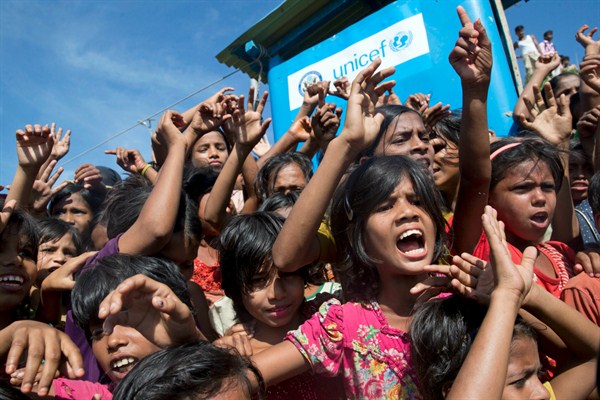Last month, the United Nations released a blistering report about its own recent track record in Myanmar, the source of one of the world’s worst refugee crises. Written by an independent investigator but commissioned by U.N. Secretary-General Antonio Guterres, the report documented the “systemic failure” by U.N. agencies in dealing with the humanitarian suffering caused by Myanmar’s state crackdown on minority Rohingya Muslims. That failure continued even as abuses escalated over the past five years, ultimately resulting in such atrocities that the U.N.’s own fact-finding mission has called for Myanmar’s top military leaders to be investigated on charges of genocide and crimes against humanity.
The results of the report were not particularly surprising, though they were a comprehensive indictment of the United Nations. A series of leaks and news articles, including many in The Guardian and Al Jazeera, had already revealed the U.N.’s approach to Myanmar to be muddled, clouded with infighting and slow to respond, with U.N. staff sometimes downplaying serious warnings of looming violence or the scope of human rights abuses.
The fact that the U.N. was willing to investigate its own actions might seem to offer some hope for change—for a more effective response to the Rohingya exodus, or at least lessons learned for other future crises. Yet the situation for the Rohingya remains precarious, both for some 1 million refugees in Bangladesh and those internally displaced in western Myanmar. As the authorities in Naypyidaw keep stonewalling any efforts to protect the Rohingya and end their suffering, a more effective U.N. approach is still critical to address a crisis that continues to spiral out of control.

